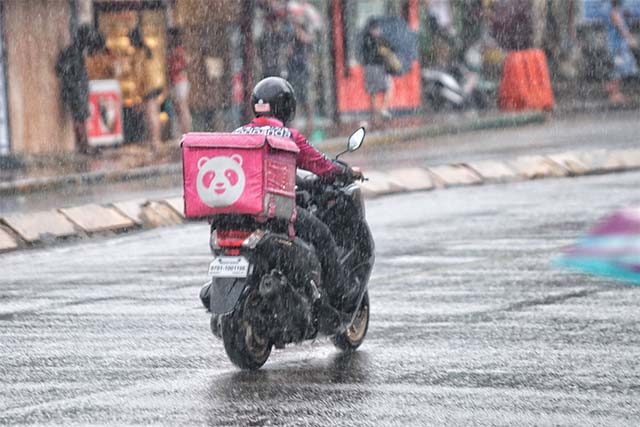
Filipino social media users advised others against pulling pranks on food delivery personnel and online sellers on April Fools’ Day.
April Fools’ Day is an annual fun tradition celebrated every April 1 when people traditionally trick others online or offline.
The day “April Fools” has so far dominated conversations on Twitter Philippines with over 700,000 tweets under its belt.
Amid the amusement, some users, however, cautioned others from performing certain types of jokes on people.
On March 31, a Facebook page called “Texts” discouraged its followers on making fake delivery orders because these affect the livelihoods of many people.
It shared an image that reads: “Hello, since tomorrow is April Fools’ Day, please wag kayong mang-trip sa mga sellers, grab and food panda riders. Thank you so much. (heart emoji).”
Since March 2020, the start of the pandemic, reports of bogus delivery orders surfaced on social media.
Some unidentified individuals would book a hefty amount of orders and then send these to their victims who, in turn, will have to pay for them.
Booked orders include food items, beverages and other groceries.
Commissioners, senators and even the Office of the Vice President were among the victims of these scams.
RELATED: ‘Ang sasama nila’: Guanzon says police probing bogus delivery orders under her name
Other users, meanwhile, also reminded others to be cautious on gags that might be offensive to race, culture, illness and identity.
“Reminder lang to everyone na please let’s not prank our delivery men (Grab, FoodPanda, etc.) or any other businessmen/ online sellers. Let’s also be cautious on the pranks that we’ll make that it won’t hurt any race, culture, illness, and identity,” one user said.
A Facebook page called Truth Slaps shared a screenshot of a tweet that listed topics or things that people should not play a joke on.
Based on the screenshot, these triggering or trauma-inducing things include the following:
- Fake pregnancy/miscarriages
- Fake coming out
- Cheating
- Mental health disorder
- Death/suicide
- Rape/sexual assault
On April 1, 2020, some government agencies warned the public against jokes about COVID-19 and fake information about the virus
This was around the time when several claims and myths about COVID-19 blew up across social media platforms.
Unclear origins
April Fools’ Day has become a custom for centuries mostly in the United States and in other Western countries.
Its exact origins, however, still remained unclear.
According to History.com, some historians speculated that this event dates back to 1582 or when France adopted the Gregorian calendar, the calendar used today.
Some people who have not known this switch of calendars continued to celebrate the old “new year” from the last week of March to April 1.
They were then called “April fools.”
Time Magazine, meanwhile, reported that an ancient Greco-Roman festival called “Hilaria” could have preceded the April Fools tradition.
The festival was celebrated on March 25 after the vernal equinox or the official start of spring in the Northern Hemisphere.









